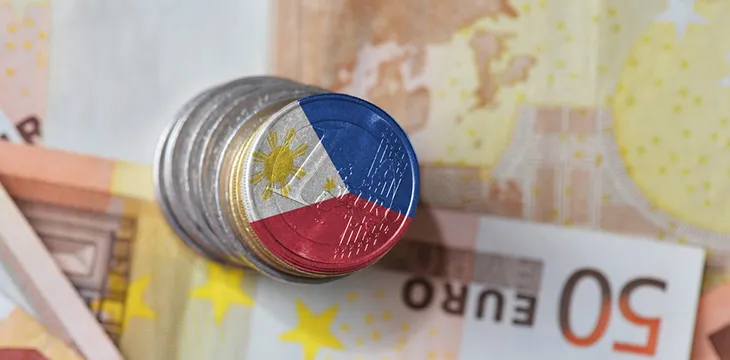|
Getting your Trinity Audio player ready...
|
Bangko Sentral ng Pilipinas (BSP), the Philippines’ central bank, is considering stablecoins to be key in improving payments in the country. Melchor Plabasan, BSP director of technology risk and innovation, disclosed the institution’s position at an event hosted by the Crypto Council for Innovation.
“We have seen it really has the potential to revolutionize both domestic and cross-border payment,” Plabasan said. He added that since the Philippines relies on foreign remittances for a chunk of its gross domestic product, turning to stablecoins will have a range of benefits for citizens.
The central bank had previously completed a round of tests on the viability of stablecoins to settle payment side by side with fiat. The initial results from BSP’s tests showed promise, and the financial regulator noted that it will collaborate with private companies to explore the possibilities.
“We’ve been collaborating with the private sector because at the end of the day, if we talk about new technology, we cannot actually regulate what we don’t understand,” said Plabasan. “That is why it’s important for us to constantly engage the private sector and learn together. We are part of the journey to get to improving digital payments using stablecoins.”
Once regulatory and technical hurdles are crossed, using stablecoins in the Philippines will be a straightforward affair. The country’s young and tech-savvy population ranks second in terms of digital asset adoption behind Vietnam, according to a Chainalysis report. Thousands of Filipinos had their first brush with digital assets during the heat of the pandemic through play-to-earn games like Axie Infinity and other decentralized finance (DeFi) applications.
Good times ahead for virtual assets
Contrary to widespread reports over an incoming blanket ban on digital assets in the Philippines, the government has announced that it has no plans to ban the asset class. The bank’s governor Felipe Medalla noted that despite the conflict in opinions, there is no legal basis for a ban.
Medalla warned investors about the volatility of assets and the lack of consumer protection that often plagues the ecosystem. In place of an outright ban, the BSP has halted applications from service providers looking to operate in the virtual currency space for three years.
“The reason for this is that we are not really sure what the market potentials are,” said Medalla. “We are also just learning how to regulate it ourselves.”
On the flip side, the BSP is making significant progress in developing a central bank digital currency (CBDC) to reduce citizens’ reliance on virtual currencies.
Watch: The BSV Global Blockchain Convention panel, Tokenizing Assets & Securities on Blockchain

 06-30-2025
06-30-2025 





